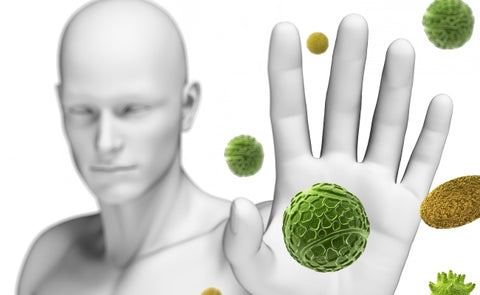
Allicin's Anti-Cancer Potential: Unveiling the Science behind Garlic's Protective Properties
Niks VajaAllicin's Anti-Cancer Potential: Unveiling the Science behind Garlic's Protective Properties
Garlic, a beloved culinary ingredient, has been revered for centuries not only for its flavor but also for its potential health benefits. Among its many compounds, allicin stands out for its promising anti-cancer properties. In this blog post, we'll delve into the science behind allicin and its potential as a natural protector against cancer.
The Power of Allicin
What is Allicin?
Allicin is a sulphur compound that forms when garlic is crushed or chopped. It is responsible for the distinct aroma and flavour of garlic and is believed to be one of the key components responsible for its health benefits.
Allicin and Cancer
Recent scientific research has suggested that allicin may play a role in preventing and inhibiting cancer. Its anti-cancer potential is attributed to several mechanisms.
Unveiling the Science Behind Allicin's Anti-Cancer Properties
Mechanisms of Action
Allicin exerts its anti-cancer effects through various mechanisms, including antioxidant activity, anti-inflammatory properties, and the ability to induce apoptosis (programmed cell death) in cancer cells.
Antioxidant Properties
Allicin is a potent antioxidant that helps protect cells from oxidative stress and DNA damage, which are factors that contribute to the development of cancer.
Anti-Inflammatory Effects
Chronic inflammation is a known risk factor for cancer. Allicin's anti-inflammatory properties can help reduce the inflammation that may lead to cancer.
Apoptosis Induction
One of the most exciting aspects of allicin is its ability to induce apoptosis in cancer cells. This process encourages the natural death of damaged or abnormal cells, which is crucial in preventing the growth of tumors.
References:
-
Herman-Antosiewicz, A., & Powolny, A. A. (2008). Anticancer effects of garlic and garlic-derived compounds for breast cancer control. The Breast Journal, 14(2), 162-166.
-
Milner, J. A. (2001). Garlic: its anticarcinogenic and antitumorigenic properties. Nutrition Reviews, 59(3), 103-105.
-
Chang, H. S., & Yamato, K. (2019). Aged black garlic exerts anti-cancer effects in colon cancer cells via modulation of apoptosis and the MAPK signaling pathway. Food & Function, 10(4), 1781-1791.
-
Block, E. (2010). The chemistry of garlic and onions. Scientific American, 252(3), 114-119.
Conclusion
The potential anti-cancer properties of allicin make garlic a compelling addition to one's diet. While it's not a stand-alone cure for cancer, it can be an essential part of a balanced and healthy lifestyle. The science behind allicin's protective properties is continually evolving, and ongoing research aims to unlock its full potential in cancer prevention.
As with any health-related topic, it's crucial to consult with healthcare professionals and maintain a balanced diet and lifestyle for overall well-being.





